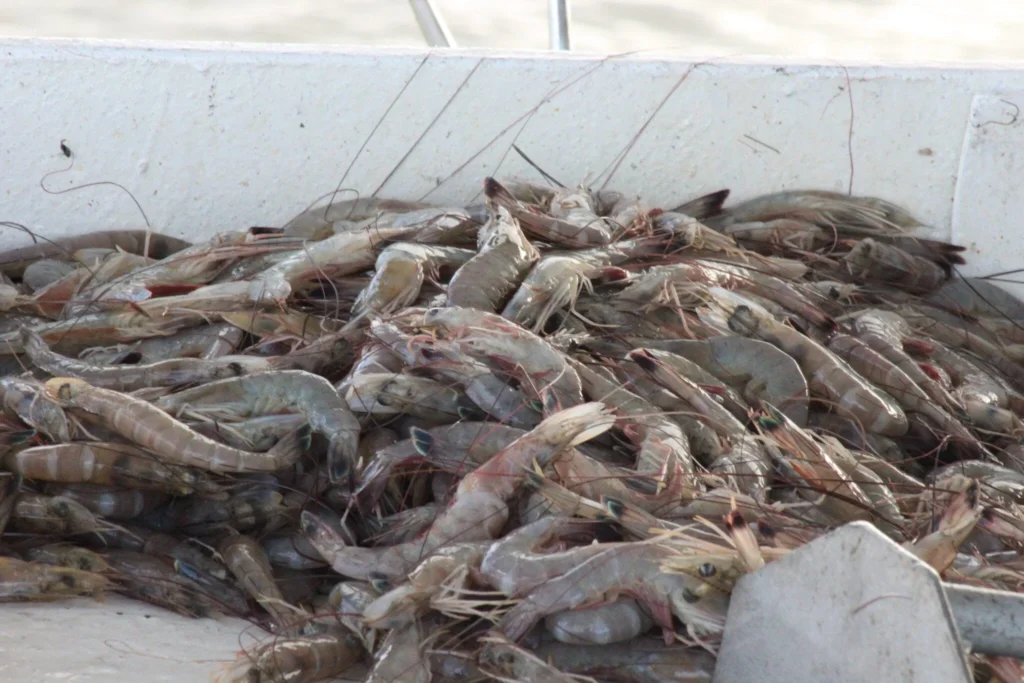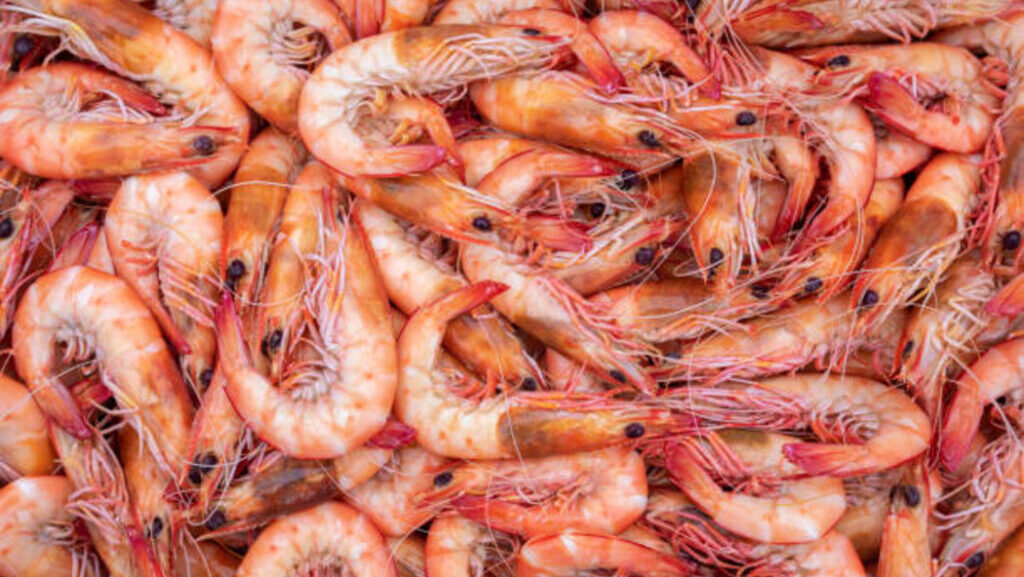The Gulf Coast is world-famous for its seafood. From Louisiana to Florida, the region’s shrimp have long been a symbol of freshness, local culture, and culinary pride. But recent studies reveal a disturbing trend: shrimp fraud is rampant across many Gulf Coast restaurants. Diners often believe they are enjoying locally caught Gulf shrimp, paying premium prices for it, when in reality they may be served imported or farm-raised shrimp.
This deception affects more than just the taste on the plate. It touches the heart of local economies, cultural traditions, and consumer trust. For decades, shrimping has been a way of life for many Gulf Coast communities. Mislabeling imported shrimp as local undermines not only the livelihoods of honest fishers but also the authenticity of Gulf Coast cuisine.
The Scale of the Deception
Recent investigations have uncovered shocking numbers. In a sample of 44 Gulf Coast restaurants, genetic testing of shrimp revealed that 39% of Gulf White Shrimp and an astonishing 92% of Royal Red Shrimp were misrepresented. These findings highlight the vast scope of the problem and demonstrate that the issue is not limited to a few isolated establishments.
Restaurants often advertise shrimp as “Gulf-caught” or “wild-caught” when they may be sourced from overseas farms. Countries like India, Ecuador, and Thailand are major exporters of shrimp, often farmed in conditions that differ greatly from the Gulf’s traditional wild shrimp. While farm-raised shrimp can be safe to eat, the problem lies in misleading labeling and the economic impact on local shrimpers.
How Shrimp Fraud Affects Consumers
For consumers, shrimp fraud can be both a financial and ethical concern. Many customers willingly pay higher prices for fresh Gulf shrimp under the belief that they are supporting local businesses. When misrepresented shrimp is served instead, diners lose trust in the restaurants and in local seafood branding.
Beyond pricing, there are health considerations. Farm-raised shrimp often contain antibiotics, preservatives, or other substances used in aquaculture, whereas wild Gulf shrimp typically have no such additives. Unknowing consumers could be exposed to substances they did not expect, highlighting another hidden risk of shrimp fraud.

Real Stories from the Gulf Coast
Local diners have shared experiences that highlight the depth of the problem. One visitor to a Biloxi seafood restaurant recalled ordering “fresh Gulf shrimp” at a premium price, only to later learn through testing that the shrimp were imported. “It felt like a betrayal,” the diner said. “You come here expecting authenticity, and you realize you’re being sold something completely different.”
Fishermen also voice their frustration. A shrimping family in Alabama explained that the influx of imported shrimp depresses local prices. “We work hard every day to bring fresh shrimp to market,” said one fisherman. “When restaurants sell imported shrimp as ours, it undercuts us and makes it hard to survive.”
Economic Implications
The economic impact of shrimp fraud is significant. Local shrimpers rely on fair pricing and consumer trust to sustain their businesses. When imported shrimp is mislabeled as Gulf-caught, it floods the market with cheaper alternatives, lowering demand for local shrimp. This not only threatens individual livelihoods but also the broader Gulf Coast economy, which heavily depends on the seafood industry.
Restaurants may benefit in the short term from lower costs, but the long-term effect is damage to their reputation. Consumers are increasingly savvy and willing to hold businesses accountable. A restaurant caught in repeated mislabeling could face serious financial repercussions, including loss of customers, fines, and legal action.
Environmental and Sustainability Concerns
Another layer to consider is environmental impact. Wild Gulf shrimp are typically harvested sustainably, whereas imported farmed shrimp can come from operations that harm ecosystems. Shrimp farming in other countries has been linked to mangrove destruction, water pollution, and overuse of antibiotics. When imported shrimp is misrepresented as local, consumers are unknowingly contributing to environmental damage, undermining sustainability efforts in the Gulf Coast.
Legal and Ethical Considerations
Shrimp fraud is not just unethical it’s illegal. Mislabeling seafood violates consumer protection laws and can result in fines, business closures, and lawsuits. The U.S. Food and Drug Administration (FDA) and other regulatory bodies have the authority to investigate mislabeling cases. However, enforcement is challenging due to the volume of restaurants and seafood suppliers.
Ethically, restaurants have a responsibility to be transparent about their sourcing. Misleading advertising erodes consumer trust and harms local communities. For businesses that genuinely want to serve local seafood, honesty is a critical part of maintaining integrity and long-term success.

How Technology is Fighting Shrimp Fraud
Genetic testing has become a powerful tool in the battle against shrimp fraud. Companies like SeaD Consulting use advanced DNA analysis to determine the true origin of shrimp. These tests can distinguish between Gulf-caught shrimp and imports, ensuring accurate labeling.
Technology is also helping consumers. Smartphone apps and QR codes allow diners to trace seafood back to its source. Restaurants embracing these tools show transparency and gain customer loyalty, turning authenticity into a competitive advantage.
The Role of Consumer Awareness
Consumers have the power to influence change. By asking questions about shrimp sourcing, looking for certification labels, and supporting restaurants committed to local products, diners can reduce the prevalence of shrimp fraud. Awareness campaigns, social media exposure, and community advocacy are key in educating the public and promoting honesty in seafood marketing.
Solutions and Industry Initiatives
Addressing shrimp fraud requires a collaborative approach:
- Stricter Regulations: Government agencies must enforce stricter labeling and sourcing rules. Regular inspections and penalties for misrepresentation can deter fraudulent practices.
- Certification Programs: Third-party certification for authentic Gulf shrimp can help restaurants and consumers identify trustworthy sources. Programs like “Certified Gulf Shrimp” ensure transparency and accountability.
- Restaurant Transparency: Businesses can provide menus with clear sourcing information, including supplier names and fishing methods. Highlighting locally caught shrimp can attract customers seeking authentic experiences.
- Consumer Education: Informing the public about shrimp fraud, its economic impact, and environmental consequences empowers diners to make informed choices.
Cultural Impact of Shrimp Fraud
Shrimp is more than just a meal on the Gulf Coast it’s a symbol of regional pride and tradition. Festivals, local cuisine, and family businesses all revolve around this iconic seafood. Misrepresenting shrimp threatens not only the economy but also cultural heritage. Ensuring authenticity preserves culinary traditions and honors the generations of shrimpers who built the Gulf Coast seafood industry.
Stories of Hope
Despite the challenges, there are success stories. Some Gulf Coast restaurants have fully committed to sourcing only local shrimp, proudly displaying their suppliers and encouraging customers to learn about the origins of their food. These establishments have gained loyal followings, proving that honesty and quality resonate with diners.
Local shrimpers have also embraced new marketing strategies, such as direct-to-consumer sales, seafood festivals, and online platforms that allow customers to order authentic Gulf shrimp. By connecting directly with consumers, they bypass fraudulent intermediaries and protect their livelihoods.
The Road Ahead
The fight against shrimp fraud is ongoing. It will require continued vigilance, collaboration, and innovation. Restaurants, regulators, and consumers must work together to ensure that Gulf shrimp remains a symbol of quality, authenticity, and sustainability.
By embracing technology, strengthening regulations, promoting transparency, and educating the public, the Gulf Coast can restore trust in its seafood industry. The shrimp on our plates can once again reflect the pride, tradition, and integrity of the communities that catch them.
Conclusion
Shrimp fraud on the Gulf Coast is a serious issue with far-reaching consequences for consumers, local businesses, and cultural identity. While the scale of the problem is alarming, there is hope. Through collective action, transparency, and commitment to authenticity, Gulf Coast restaurants and seafood suppliers can restore trust and ensure that shrimp remains a source of pride for generations to come.
Consumers have the power to demand honesty, support local businesses, and safeguard the rich culinary heritage of the Gulf Coast. By understanding the impact of shrimp fraud and taking conscious choices, we can make a difference one shrimp dish at a time.
Do follow Gulf Magazine on Instagram.
Also Read – Gulf Coast Restaurants We Miss: Iconic Dining Spots & Legendary Flavors



